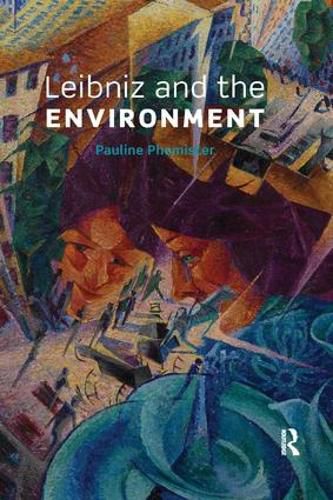Readings Newsletter
Become a Readings Member to make your shopping experience even easier.
Sign in or sign up for free!
You’re not far away from qualifying for FREE standard shipping within Australia
You’ve qualified for FREE standard shipping within Australia
The cart is loading…






The work of seventeenth-century polymath Gottfried Wilhelm Leibniz has proved inspirational to philosophers and scientists alike. In this thought-provoking book, Pauline Phemister explores the ecological potential of Leibniz’s dynamic, pluralist, panpsychist, metaphysical system. She argues that Leibniz’s philosophy has a renewed relevance in the twenty-first century, particularly in relation to the environmental change and crises that threaten human and non-human life on earth.
Drawing on Leibniz’s theory of soul-like, interconnected metaphysical entities he termed ‘monads’, Phemister explains how an individual’s true good is inextricably linked to the good of all. Phemister also finds in Leibniz’s works the rudiments of a theory of empathy and strategies for strengthening human feelings of compassion towards all living things.
Leibniz and the Environment is essential reading for historians of philosophy and environmental philosophers, and will also be of interest to anyone seeking a metaphysical perspective from which to pursue environmental action and policy.
$9.00 standard shipping within Australia
FREE standard shipping within Australia for orders over $100.00
Express & International shipping calculated at checkout
The work of seventeenth-century polymath Gottfried Wilhelm Leibniz has proved inspirational to philosophers and scientists alike. In this thought-provoking book, Pauline Phemister explores the ecological potential of Leibniz’s dynamic, pluralist, panpsychist, metaphysical system. She argues that Leibniz’s philosophy has a renewed relevance in the twenty-first century, particularly in relation to the environmental change and crises that threaten human and non-human life on earth.
Drawing on Leibniz’s theory of soul-like, interconnected metaphysical entities he termed ‘monads’, Phemister explains how an individual’s true good is inextricably linked to the good of all. Phemister also finds in Leibniz’s works the rudiments of a theory of empathy and strategies for strengthening human feelings of compassion towards all living things.
Leibniz and the Environment is essential reading for historians of philosophy and environmental philosophers, and will also be of interest to anyone seeking a metaphysical perspective from which to pursue environmental action and policy.